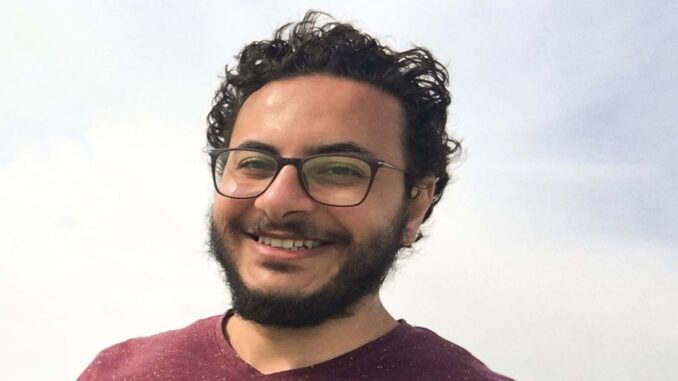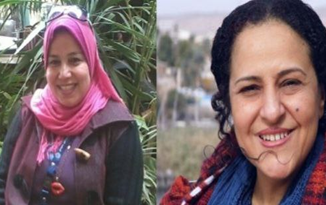
Amnesty International has called on the Egyptian authorities to revoke the arbitrary travel ban on researcher and former prisoner Ahmed Samir Santawy
The Egyptian authorities have imposed an arbitrary travel ban on former prisoner of conscience and researcher Ahmed Samir Santawy, who is currently doing a master’s degree at a university in Vienna, Amnesty International said today.
Ahmed Samir Santawy attempted to leave Cairo International Airport this morning, but immigration officers prevented him from traveling to Austria without justification or judicial order.
“Despite talk of reform with the long-awaited launch of the National Dialogue in May, this is yet another outrageous example of the Egyptian authorities’ acts of repression to silence and control critical voices and punish anyone standing up for human rights,” said Philip Luther, Amnesty International’s Research and Advocacy Director for the Middle East and North Africa, adding:
“Arbitrary and open-ended travel bans have a detrimental impact on activists’ personal and professional lives. They are not only intended to control independent voices and sever their connections with the outside world, but also to instil fear and send a chilling message that dissent will not be tolerated”.
“The Egyptian authorities must immediately revoke all arbitrary travel bans against human rights defenders, civil society members, political opponents and others who are being targeted solely for peacefully exercising their human rights. In addition to violating the right to leave one’s own country, they undermine a host of other rights including to education, family life, health, freedom of expression and association. The international community must put pressure on the Egyptian authorities to stop this vindictive practice and start respecting the rights to freedom of expression and movement.”
Ahmed Samir Santawy told Amnesty International:
“It has been ten months since I was released from prison with a presidential pardon, however I still feel that I’m still not completely free. My life is on hold. This travel ban is not just depriving me of my basic right to move freely after I was unjustly imprisoned for 18 months, but it is also severely disrupting my life. I can’t pursue my academic career, and I can’t be with my partner in Belgium. I am not allowed to plan for my future because I don’t know if they will let me travel to start a PhD for example”.
Ahmed Samir Santawy is a researcher and an anthropology student at the Central European University in Vienna, Austria. His research generally addresses women’s rights, with a focus on reproductive rights.
He was arrested on 1 February 2021 and subsequently convicted for spreading “false news” and sentenced to four years’ imprisonment following an unfair trial. His conviction was based solely on social media posts criticizing human rights violations in Egypt and the state’s mishandling of the Covid-19 pandemic. Following a global campaign, he was released on 30 July 2022 after receiving a presidential pardon.
Cairo International Airport officials previously arbitrarily banned Ahmed Samir Santawy from traveling to Austria to resume his studies on 27 August 2022, citing “instructions from security agencies”.
Egyptian authorities continue to ban at least 18 human rights defenders and NGO workers from traveling abroad, some for over six years. They include directors and staff at organizations such as the al-Nadeem Centre for the Rehabilitation of Victims of Torture, the Egyptian Initiative for Personal Rights, the Cairo Institute for Human Rights Studies, and the now-closed Arab Network for Human Rights Information.
Security forces have wide discretionary powers to ban individuals from traveling without judicial orders or any due process. Most of those subjected to travel bans are not even informed of any restrictions and only discover their travel bans when they attempt to board international flights.



